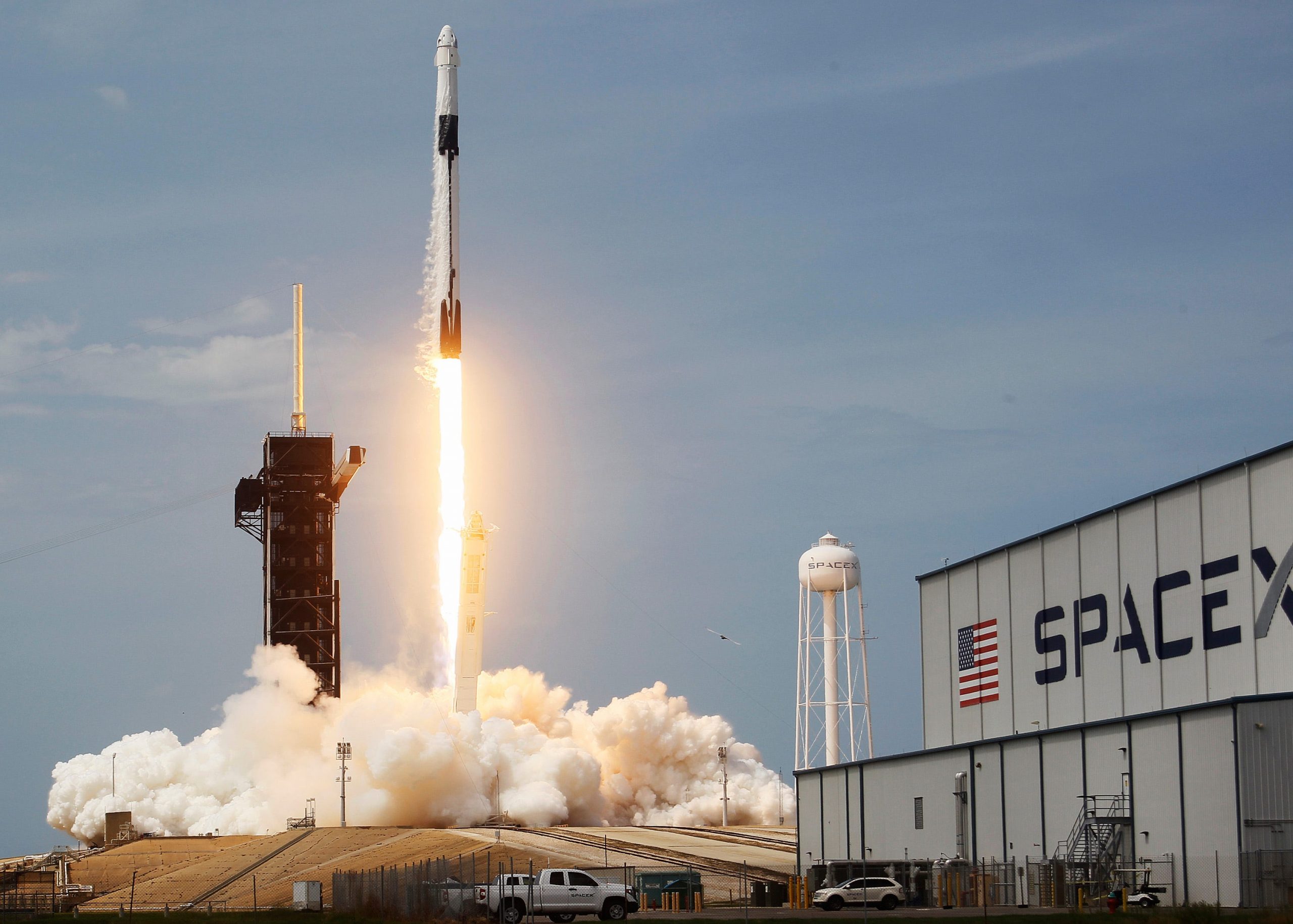
Joe Raedle/Getty Images
- SpaceX on Sunday successfully launched a Falcon 9 rocket from Cape Canaveral Space Force Station for its seventh trip to space — the second individual Falcon 9 rocket to reach the milestone.
- Strapped to the Falcon 9 was SiriusXM’s digital-audio radio satellite, which will beam down more than 8,000 watts of content to the broadcasting company’s subscribers in the US, Canada, and the Caribbean.
- The Falcon 9 launch should have happened on Friday, but SpaceX said it was standing down to perform additional ground system checks.
- Visit Business Insider’s homepage for more stories.
Elon Musk’s SpaceX on Sunday blasted off a Falcon 9 rocket carrying a new radio satellite that will broadcast to Sirius XM subscribers in the US, Canada, and the Caribbean from orbit.
The mission was originally planned for Friday, but SpaceX said it was standing down from the launch to perform additional ground system checkouts.
The two-stage Falcon 9 rocket took off at 12:30 p.m. ET from Space Launch Complex 40 at Cape Canaveral Space Force Station in Florida. A SXM-7 digital audio radio satellite was strapped to the rocket and taken into orbit for American broadcasting company Sirius XM.
It was the space company’s 25th launch of the year.
SiriusXM, which provides satellite radio and online radio services, confirmed Sunday in a statement the SXM-7 satellite was “performing properly.”
The SXM-7 satellite will beam down more than 8,000 watts of content to SiriusXM subscribers across the US, Canada, and the Caribbean, the company said.
This was the seventh time this particular Falcon 9 rocket embarked on a trip into space, making it the second of SpaceX's Falcon rockets to complete seven journeys. The first one delivered 60 Starlink satellites into orbit in November.
Approximately nine minutes after Sunday's launch, the Falcon booster's first stage came back down to Earth, and landed on SpaceX's drone ship "Just Read The Instructions," positioned in the Atlantic Ocean.
This marked the 69th recovery of a first-stage booster for SpaceX.
—SpaceX (@SpaceX) December 13, 2020
"We had a beautiful Falcon 9 launch today, safely delivering SXM-7 to orbit," Lee Rosen, SpaceX's Vice President of Customer Operations and Integration said in a statement.
"This was the seventh flight for this rocket's first stage booster, and we are grateful SiriusXM chose our flight-proven hardware to help broaden its coverage area."
The SXM-7 satellite was built by Maxar Technologies for SiriusXM and weighs almost 7,000 kg. It's one of two satellites to be launched by SpaceX to replace outdated SiriusXM satellites currently in orbit.
The second satellite, SXM-8, is set to launch next year. Each satellite provides service for more than 15 years, and the two new additions will extend its satellite delivered services to at least 2036, SiriusXM said.
Do you work for SpaceX? Got a tip? Contact this reporter at [email protected]. Always use a non-company email account.
